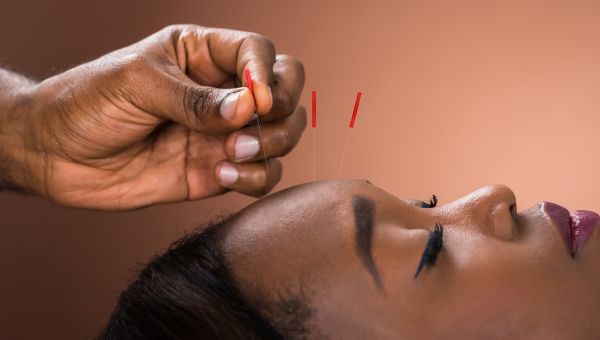What You Need to Know About Acupuncture
Can a millennia-old practice really help your health? Proponents of acupuncture think so, and science backs them up. “My patients are often surprised about the breadth of research, and that acupuncture is taught in many medical schools,” says Sheri Krauss, a licensed acupuncturist with Our Lady of Lourdes Medical Center in Cherry Hill, New Jersey. “They’re surprised it’s as scientific as we believe it to be.”
One possibility, according to Krauss, is that “Acupuncture points can help stimulate the central nervous system, which will release chemicals in the muscles, spine and brain. These chemicals can affect the experience of pain.” Exactly how acupuncture works still isn’t fully understood, and it’s possible that the overall experience of acupuncture—as opposed to the actual insertion of needles—can explain some of the benefits.
Next, the acupuncturist will have you lie down and begin to insert thin, sterile needles in particular points. You may feel the needles prick the skin, but it is not typically painful. Once the acupuncturist has finished, expect to be lying down and relaxing with the needles in place for 5 to 30 minutes.
You may not feel any change in your condition after your first session, but you and your acupuncturist will work together to come up with a treatment plan. Acute pain can take 8 to 10 sessions to complete treatment, and your acupuncturist will probably want to see you at regular intervals for maintenance.
“Acupuncture is good at treating pain, and especially good with conditions related to stress,” says Krauss. “It treats pain, muscle tension and stress-related gastrointestinal problems really well.” A January 2017 study published in National Institute for Health Research Journals Library suggests that acupuncture can enhance the effectiveness of standard treatment in chronic pain and depression cases.
Acupuncture is not a panacea or cure-all, however. The practice is often sought out to help people quit smoking, but a 2014 meta-analysis of 38 studies suggests that acupuncture and other related techniques and procedures are not effective in the long run in helping people to quit smoking. Systematic reviews of the research on using acupuncture to treat anxiety and depression have also been mostly inconclusive.

